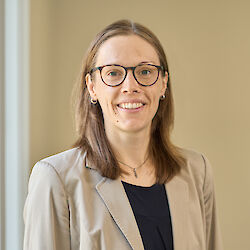“Future Meeting Space” explores customer needs and expectations on new event formats
Call to take part in Kano survey on events of the future
Business events are currently undergoing considerable change, with virtual formats rapidly growing in importance due to the Covid-19 pandemic and new digital tools being tested along the entire customer journey. In its current third research phase, the “Future Meeting Space” (FMS) innovation network is looking to gain more insights into the needs and wants of attendees, meeting planners and service providers with regards to future events. To that end, FMS has launched a survey based on the Kano model, which will be carried out by the Fraunhofer Institute for Industrial Engineering IAO.
The first part of the survey is aimed at event attendees and covers, among others, questions related to the design of event spaces, multisite and hybrid formats or the use of different digital tools as part of the customer journey. The second part is specifically designed for planners and organisers as well as venue and service providers with questions that are tailored to their perspective, including about must-haves for future events or things they could do without. Regarding event organisers, questions revolve around online comparison platforms, social seating, the anonymous KPI comparison with other events or the option to make their venue available as a digital twin. Service providers are questioned about real-time analyses of attendee behaviour or whether they would market their venue as a co-working space in-between events in order to increase utilisation.
“A dedicated focus on the needs of every stakeholder involved and their respective customer journey will be key for successful events of the future, no matter if analogue, hybrid or digital,” says GCB German Convention Bureau Managing Director Matthias Schultze, explaining the background of the study. “The results of this study, which has a broad and worldwide scope, will create an evidence-based foundation for developing tailor-made event formats according to the wishes and expectations of the surveyed attendees, planners and service providers.” Anyone interested in taking part can do so here. The survey is intended for attendees, organisers and planners as well as service and infrastructure providers in the event space, such as meetings and conferences, and is open until 30 June 2020.
Benefits of the Kano model
The Kano model was developed by the Japanese professor Noriako Kano in the 1980ies. It explores customer satisfaction on the basis of a bipolar survey, meaning that both the positive and negative form of each question is tested, i.e., “What would you say if there were digital twins of event venues?” vs. “What would you say if there were no digital twins of event venues?” The method aims at finding out how various product and service features impact on customer satisfaction to develop relevant offers. “The Kano model is also well suited to identify the level of acceptance or even the enthusiasm customers have with regard to novel future features or services before they are being widely used. To my knowledge, the Kano model has never been used in the meetings industry so far and we are very excited to see the results of our survey,” explains Dr. Stefan Rief, Head of Organisational Development and Work Design Research Unit at Fraunhofer Institute for Industrial Engineering IAO.
Notes to the Editor
Survey link: https://s.fhg.de/FMS-futurevisions-english
About Future Meeting Space (FMS)
The FMS innovation project was launched by the GCB and the European Association of Event Centres (EVVC) in collaboration with the Fraunhofer Institute for Industrial Engineering IAO with the key goal of developing a vision for how people will meet in the future. This includes developing practical, hands-on tools for meeting planners and suppliers to help them get ahead of the curve. Results so far include, from phase I, an “Innovation Catalogue” round-up of new and future technologies, six “Future Meeting Scenarios” as well as the “Future Meeting Room” and from phase II, a report on how to create engaging events, including an overview of different attendee types, event success factors and recommendations for actions. Research partners of the third research phase, which zooms in on the purpose of events, are KFP Five Star Conference Service GmbH, Xing Events GmbH, Maritz Global Events Inc., Radisson Hotels, Seven Centers of Germany, Munich Airport Academy, Mesago Messe Frankfurt, EVVC European Association of Event Centers and GCB German Convention Bureau e.V.
 © GCB/ Patrick Kuschfeld
© GCB/ Patrick Kuschfeld
Dr. Martina Neunecker
- Director Communications & Strategy
- +49 69 24293025
- neunecker@gcb.de
 ©
©